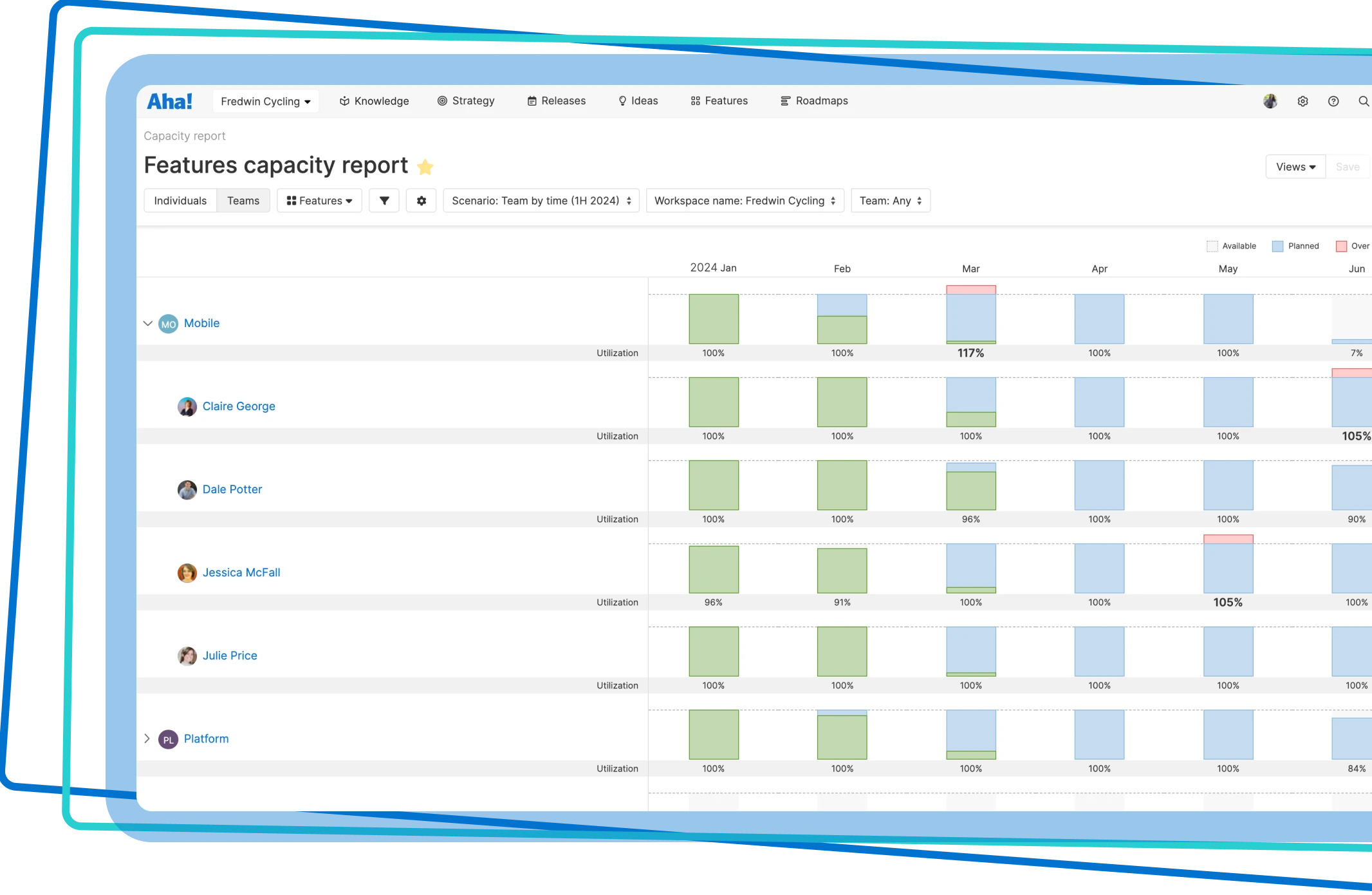

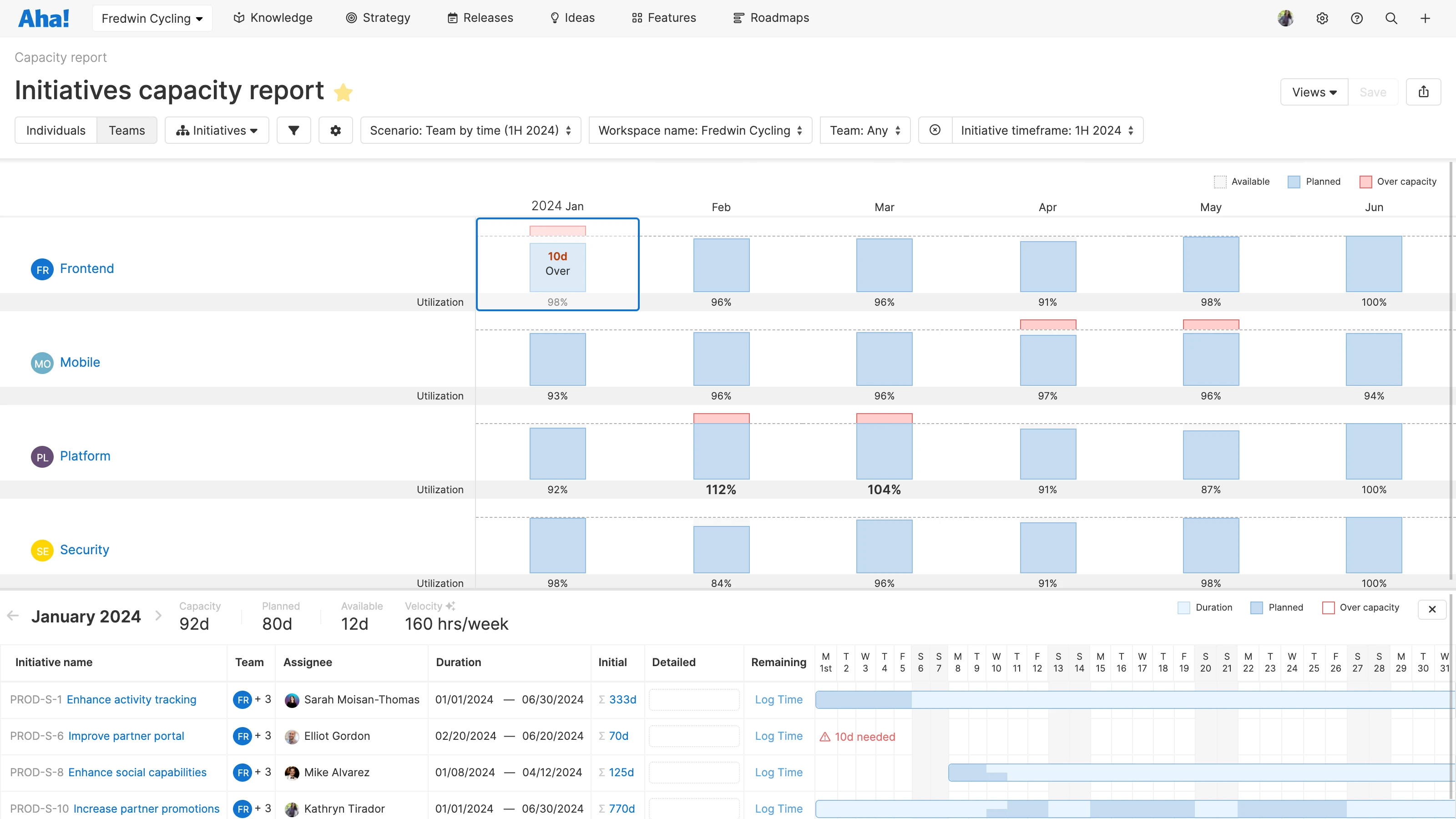
Map out what it will take to achieve your plan. Understand capacity at the individual and team levels, accurately estimate engineering effort, and visualize workloads — so you can set realistic delivery dates. You can even create alternative scenarios to compare different versions of your plan.
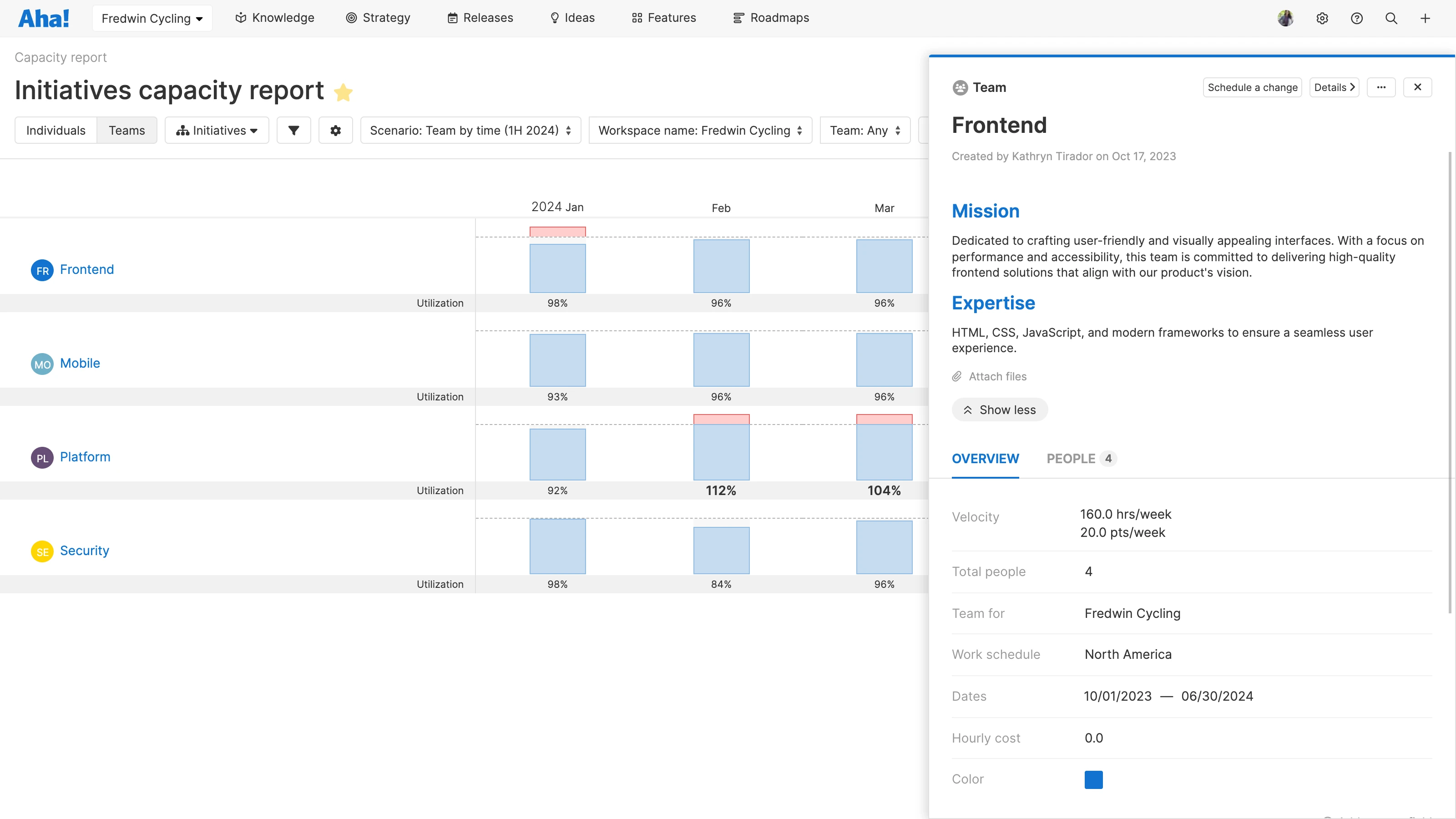
Start by adding details about each team. (Or link directly to teams in Aha! Develop.) Then, enter an initial estimate of what it will take to deliver new functionality. Use the capacity report to identify resource constraints early. Adjust the timing and scope to deliver a roadmap the whole team believes in.
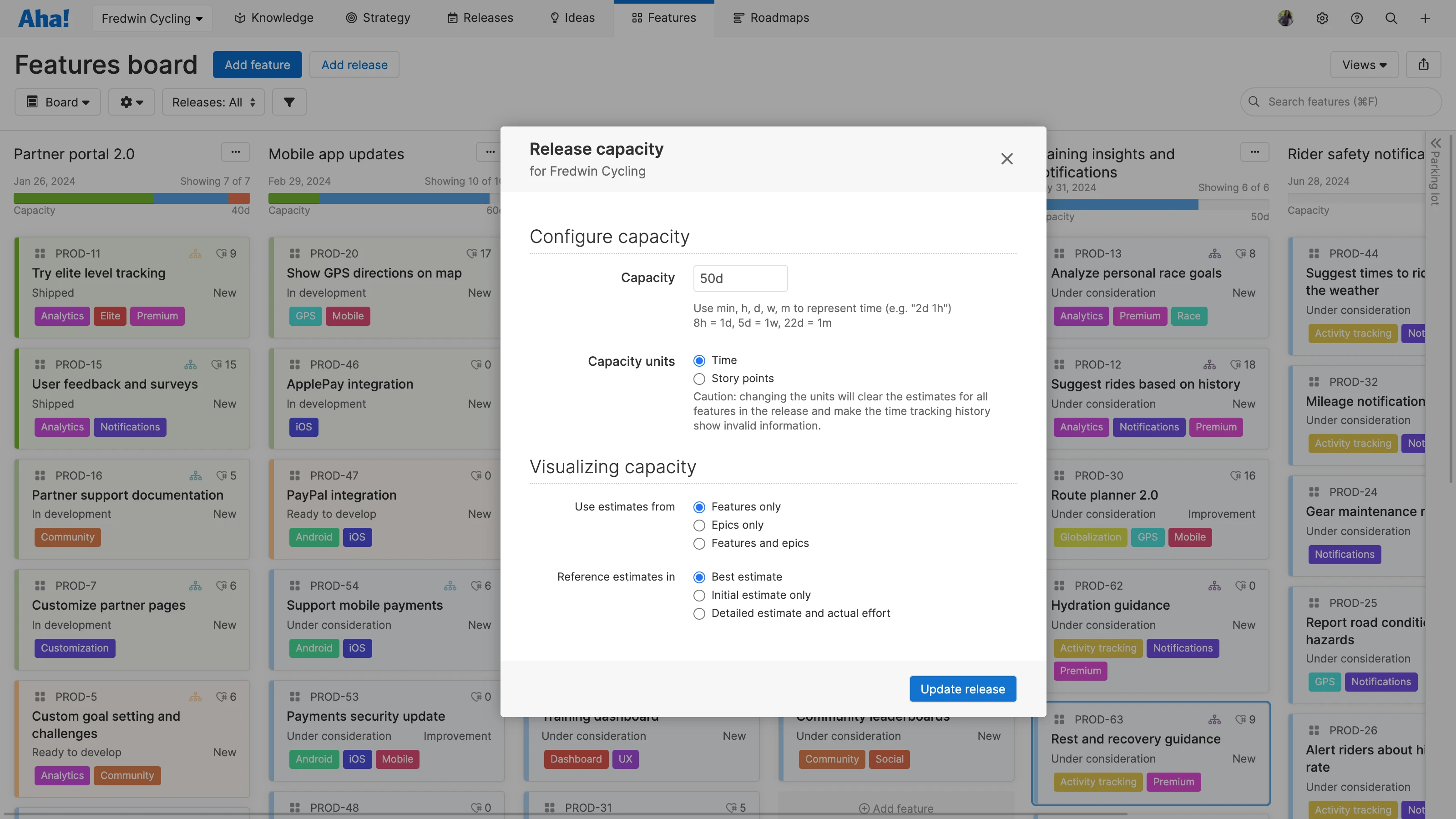
Work closely with development teams to create detailed estimates based on underlying technical requirements. Plan releases — setting the overall capacity, prioritizing features, and assigning work to team members. Set achievable deadlines without overloading the team.
Keep the capacity report on hand throughout planning and implementation. Toggle between individual and team views to see who is available, what work is planned, and if anyone is over capacity. Instantly see where more time or resources are needed, reallocating work directly from the report.
Create an integrated capacity planning workflow. Use Aha! Roadmaps and Aha! Develop together to keep estimates in sync and track progress as work gets underway. You can also integrate with other engineering tools — like Jira or Azure DevOps — to ensure you have the most up-to-date information.
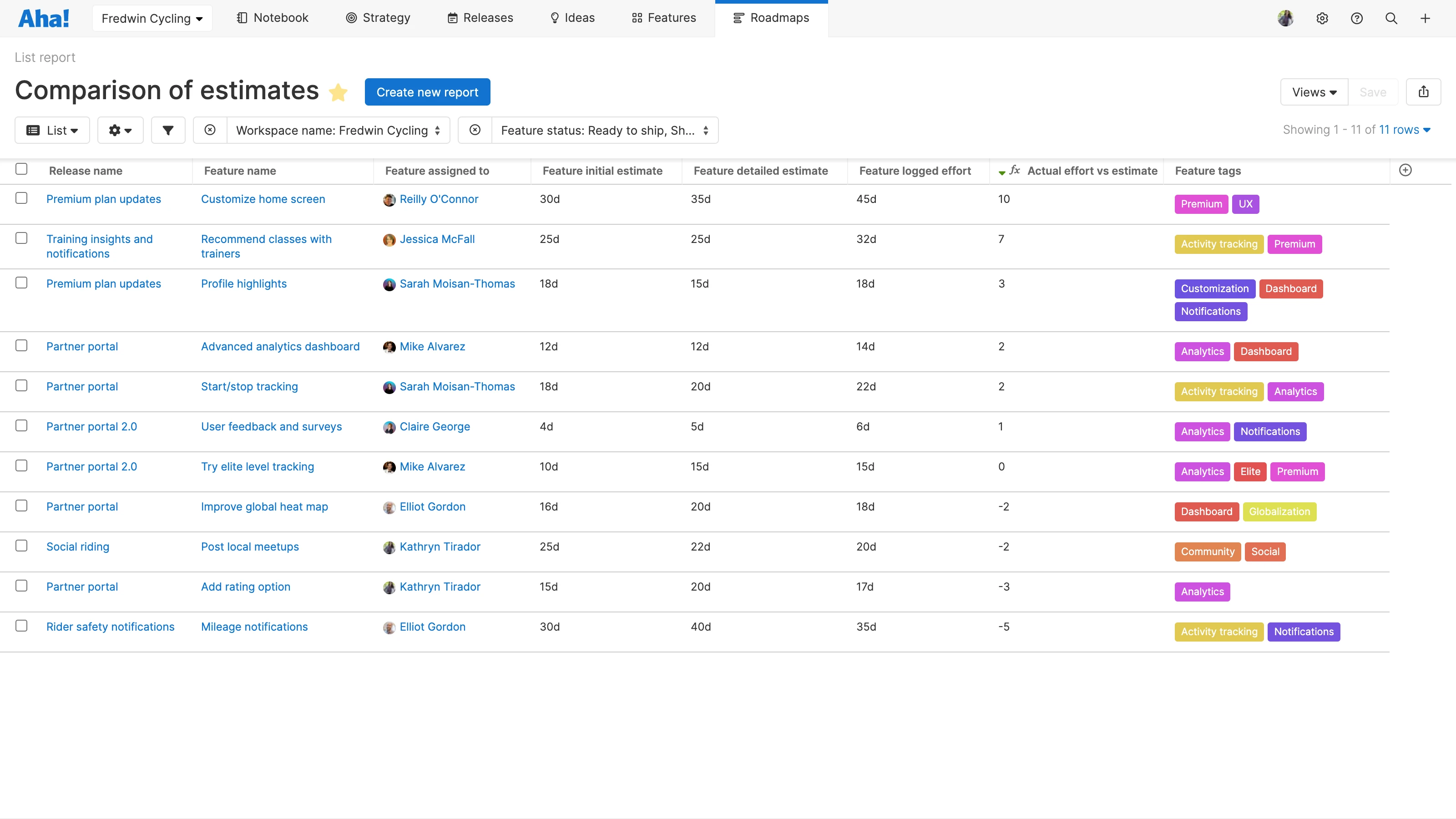
Roadmap achieved — let's compare your estimates against the actual effort. If there are large differences, investigate why. Retrospective reports help you visualize burndown and quickly identify the scope changes that affected each release. Use this valuable information to improve the way you manage resources for the future.